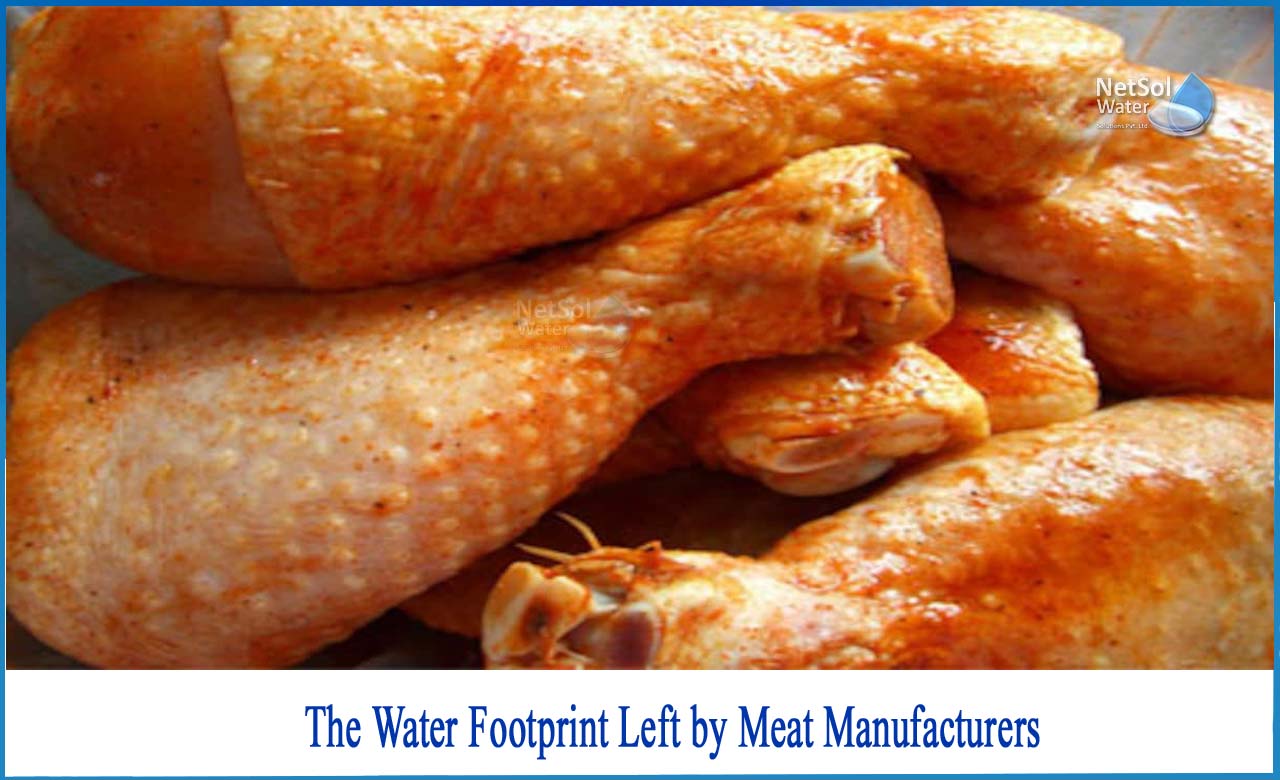Overview
While most meat production requires far more water than growing vegetables, there are ways for the industry to improve water efficiency until beef production declines.
According to the Intergovernmental Panel on Climate Change (IPCC), our food system accounts for roughly 33% of greenhouse gas emissions, and humanity's ever-expanding agricultural land use is catching up with us. More droughts, wildfires, floods, insect invasions, and other extreme weather events are predicted as our world warms, making agriculture more difficult.
What is Water footprint?
The term "water footprint" refers to the amount of fresh water used by any given process or activity. Growing and processing crops and livestock consumes a lot of water, so food has a high water footprint. Animal products, in particular, such as meat, dairy, and eggs (all of which require more water than fruits, vegetables, and beans) have a significantly higher water footprint.
Individually, one's diet accounts for the majority of one's personal water footprint. This is why preventing food waste on an individual level is important: discarded food not only wastes the water used to produce it, but also all other resources involved.
Water Footprints have three components
The Water Footprint Network created water footprints to assess the amount of water (of various types) used in the production of food and other products.
Water footprints are made up of three distinct calculations:
1.Blue Water Footprint: The amount of surface and groundwater required to produce an item (evaporated or used directly). This primarily refers to crop irrigation in the food industry.
2.Green Water Footprint: The amount of rainwater required to make an item (evaporated or used directly). In the food industry, this refers to dry farming, in which crops are watered only by rain.
3.Grey Water Footprint: The amount of fresh water required to dilute pollutants and purify water to EPA water quality standards. Water for food would have been polluted by agricultural runoff or leaching from the soil.
Agriculture uses 70 percent of the world's freshwater withdrawals. Meat and dairy production consumes more resources and emit more greenhouse gases than any other agricultural sector. However, beef/meat production is the undisputed king of thirsty agriculture in the world, and it remains to be seen whether the world will be able to give up beef, as nutrient-dense and culturally embraced as it is.
The water footprint of beef is estimated to be 1,800 gallons per pound, far greater than that of sheep, pigs, goats, and chickens, and this is true whether the cattle is grass fed or industrially raised. Beef cattle consume one-third of all water used in animal production. Add another 19% for dairy cattle.
Conclusion
The majority of meat is processed in slaughterhouses, which generate several streams of wastewater, including cleaning water and slaughtering line processing water. Because of its highly variable organic content, treatment of the latter is generally difficult, so it is preferable to treat it in-house because its organic load can overwhelm municipal wastewater treatment plants.
Dissolved air flotation (DAF) is a first stage of treatment that removes approximately 80% and 65% of the organic and nitrogen loads, respectively. Anaerobic digestion, which uses microorganisms to degrade sludge, is commonly used to treat leftover sludge. The biogas produced by the process can be captured and used to generate steam or electricity, lowering operating costs. Often, processing plants generate enough energy to meet their own needs while also producing a surplus that can be sold. DAF and anaerobic digestion are frequently used in conjunction with other processes such as dehydration, nitrification-denitrification, and final clarification.
What can Netsol Water provide?
Netsol Water is a significant water and wastewater treatment firm in India, offering WTP, WWTP, STP, ETP, RO Plant manufacture, among other services. The company creates equipment’s and is committed to providing practical solutions that help businesses flourish. We are committed to providing our valued customers with hands-on service, expert counselling, and training.
Netsol Water is Greater Noida-based leading water & wastewater treatment plant manufacturer. We are industry's most demanding company based on client review and work quality. We are known as best commercial RO plant manufacturers, industrial RO plant manufacturer, sewage treatment plant manufacturer, Water Softener Plant Manufacturers and effluent treatment plant manufacturers. Apart from this 24x7 customer support is our USP. Call on +91-9650608473, or write us at enquiry@netsolwater.com for any support, inquiry or product-purchase related query.



